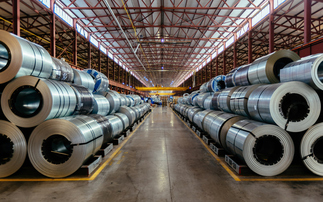Friends of the Earth analysis suggests shale gas explorations would force the UK to exceed its carbon budgets
One of the most eye-catching components of the Intergovernmental Panel on Climate Change's (IPPC) latest report - besides the grave warnings of serious and escalating climate risks - was the decision to include a detailed carbon budget showing how much carbon the world can safely emit and stay within a 2ºC temperature rise.
The report states that if the world is to have a 50:50 chance of limiting warming to no more than 2ºC, we can only emit around 1,100 billion tonnes of carbon (GtCO2) during the rest of this century. But what exactly does this budget mean for the UK?
The IPCC understandably shied away from stipulating how the new budget should be shared between countries, not least because the division of carbon allowances remains perhaps the most contentious question at the UN's climate change negotiations. Should we just divide up the remaining budget on a per capita basis for each country? How much should we take account of historical emissions? The Bolivian government has long argued that responsibility should be calculated from pre-industrial levels, while others say they should at least account for the 1970s. Should countries be allowed to buy parts of the budget from other nations? All of these questions and many more remain unresolved.
But now a new analysis from Friends of the Earth has attempted to calculate the UK's own carbon budget based on the IPCC's global emissions allowance. The conclusion, however you look at it, is that we can't burn very much carbon at all if we want to stay within 2ºC, while exploiting shale gas reserves is firmly off limits.
The new report, which is based on previous work by the Carbon Tracker group and new calculations from FoE campaigner Simon Bullock, analyses the budget under various scenarios regarding historical responsibility and levels of probability for meeting the 2ºC goal.
The analysis suggests that the UK has already used up to 99 per cent of its carbon budget. If we want a 66 per cent chance of staying within 2ºC by the end of the century and cast the net of historical responsibility back to cover all emissions since 1990, the UK has one hundred million tonnes (0.1Gt) of CO2 left to emit.
If we were willing to take on a greater degree of risk and aimed for a 50:50 chance of meeting the 2ºC goal, we would be able to burn 2.5Gt of carbon. Similarly, if we want to take a lax approach to historical responsibility and discounted emissions from the 1970s and 80s, we could emit 4Gt and still have a 66 per cent chance of meeting the target.
But, whichever way you cut it, the analysis shows the UK has little room for manoeuvre, especially when it comes to exploiting new fossil fuel reserves such as shale gas.
Bullock tells BusinessGreen that given the existing commitments by governments to stay within 2ºC , then the lower end of the budget looks more likely. "If we're aiming for 2ºC, as the United Nations has said it is, then you need to be more than 50 per cent sure you'll reach that goal," he says.
But the analysis shows the UK is already on track to far exceed those budgets. The government's current central projection is that the UK will emit 4Gt through to 2030. But, exploiting shale gas reserves would add an additional 7Gt to an already depleted carbon budget. Underground coal gasification would emit a further 4Gt and coal bed methane would add half a gigatonne, all of which leads to 15.5Gt - far above the original budget.
"The UK plans on producing far more than a reasonable share of the world's burnable carbon. Shale gas is just adding to a huge unburnable carbon," states the report. "Even with very lenient allocation of the world's remaining carbon budget for UK fossil fuels, we are planning to extract far more than that."
Although the figures are likely to be disputed, they nevertheless demonstrate the extent to which the UK and other industrialised nations face extremely tight carbon budgets if they are to meet their stated 2ºC goal. It is easy to understand why the head of the UN's climate change secretariat, Christiana Figueres, this week admitted the IPCC's carbon budget would not provide the basis for the next round of UN climate change negotiations on the grounds that agreeing on how to divide up the global budget and then comply with it is simply too politically difficult.








